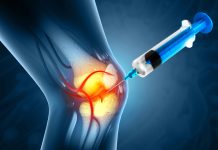The MHRA has approved Tofersen to treat SOD1-related motor neurone disease (MND), a rare inherited form of the condition. This marks a significant step forward in targeted treatments for MND in the UK
A new treatment option has been approved in the UK for a rare form of motor neurone disease (MND) with a genetic basis. Tofersen, developed to target SOD1-related MND, has received regulatory approval from the Medicines and Healthcare products Regulatory Agency (MHRA), offering new hope to a small group of patients with this inherited condition.
SOD1-ALS is a rare form of ALS
ALS is a progressive condition that affects the nerve cells in the brain and spinal cord. This eventually leads to muscle weakness. Tofersen works by reducing levels of the toxic protein produced by the SOD1 gene, which damages nerve cells.
SOD1-ALS is a rare, inherited form of amyotrophic lateral sclerosis (ALS) caused by mutations in the SOD1 gene, which encodes an enzyme responsible for neutralising harmful oxygen molecules in the body. These mutations lead to the misfolding and accumulation of toxic proteins within motor neurons, ultimately causing their degeneration. The SOD1 gene is a key player in the progression of ALS, and its mutations were the first genetic cause identified and remain a key focus of research and treatment.
Tofersen offers new hope to the MND community
Tofersen was approved through the International Recognition Procedure and is administered by a healthcare professional via lumbar puncture at regular intervals.
Common side effects seen in clinical studies include headache, back pain and tiredness. In rare cases, more serious side effects have occurred, including inflammation of the spinal cord or optic nerve, and increased pressure around the brain.
The approval of Tofersen is supported by a comprehensive body of evidence, including its targeted mechanism of action, biomarker changes, and clinical trial data. In the randomised, double-blind, placebo-controlled Phase 3 VALOR study involving 108 participants, patients were assigned in a 2:1 ratio to receive either 100 mg of Tofersen (72 patients) or placebo (36 patients) over 24 weeks. The primary measure of effectiveness was the change from baseline to Week 28 on the ALS Functional Rating Scale-Revised (ALSFRS-R) total score. Although results numerically favoured Tofersen, the difference was not statistically significant in the intent-to-treat population (adjusted mean difference: 1.4; 95% CI: -1.3 to 4.1). Notably, by Week 28, levels of plasma neurofilament light chain (NfL)—a biomarker of nerve cell injury and degeneration—were reduced by 55% in Tofersen-treated patients, compared to a 12% increase in the placebo group, representing a significant difference between the two (60%; 95% CI: 51% to 67%).
Approval follows campaigning by the leading MND charity
The MND Association launched the Prescribe Life campaign to advocate for equitable access to Tofersen, a groundbreaking treatment for individuals with SOD1-related motor neurone disease (MND).
In October 2024, the MND Association initiated a petition urging the National Institute for Health and Care Excellence (NICE) to reconsider its assessment pathway for tofersen. The campaign garnered significant support, with over 15,000 signatures within weeks, highlighting the urgency felt by the MND community.
Despite the campaign, challenges remained. While Biogen, the manufacturer of Tofersen, committed to providing the drug free of charge, some NHS trusts faced logistical constraints, such as staffing and facility limitations, leading to inconsistent access across the UK. In July 2025, the MHRA approved the medication, bringing Tofersen to patients in the UK.











